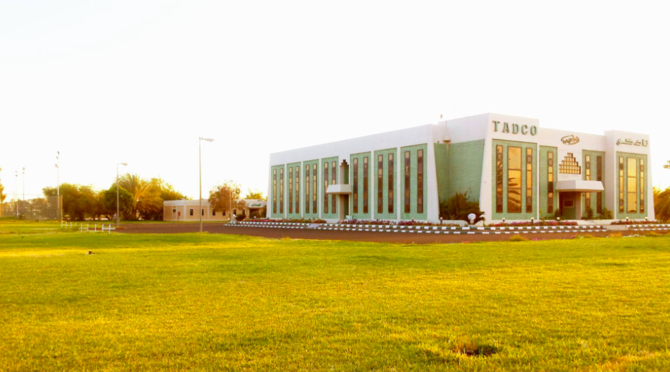RIYADH: Saudi Arabia’s food security drive is set to receive a boost as NEOM subsidiary Topian has partnered with Tabuk Agricultural Development Co., also known as Tadco, to innovate fruit and vegetable production.
A memorandum of understanding aimed at leveraging advanced agricultural technologies and practices to enhance domestic food production was signed. It includes setting up a hydroponic greenhouse facility at the company’s site in Tabuk, located in northwestern Saudi Arabia.
Hydroponics is the method of cultivating plants without soil and utilizing minimal water resources.
Hydroponic gardens, designed for space efficiency, can grow fruits, vegetables, and flowers in half the time of traditional agriculture, while using 90 percent less water. This will support the Kingdom’s efforts toward sustainable food production practices.
Under the terms of the MoU, Topian will bring its expertise to the table, handling key responsibilities including the design, installation, and operation of the hydroponic greenhouse facility.
Additionally, the NEOM subsidiary will oversee all aspects of greenhouse management, from production planning to workforce training and customer relations, as stated in a release on the Saudi Stock Exchange.
The deal will see Tadco taking on a pivotal role in facilitating the project’s success by providing essential support and resources.
This includes identifying and allocating suitable agricultural land for the greenhouse, establishing distribution channels for product off-take, and providing infrastructure and labor assistance to ensure seamless project execution.
The partnership underscores Saudi Vision 2030’s aim to enhance food security through increased domestic production and sustainable agricultural practices.
It shows the country’s commitment to greenhouse projects. In January 2021, for instance, Al-Jouf Agricultural Development Co. inaugurated the Kingdom’s largest greenhouse complex, spanning 12 hectares and employing advanced hydroponic technology.
The Kingdom has also been promoting the adoption of water-efficient irrigation technologies to optimize water use in agriculture.
In 2019, the Saudi Ministry of Environment, Water, and Agriculture announced plans to convert 1.2 million hectares of traditional flood irrigation to more efficient methods by 2030.
Similarly, the National Water Strategy of Saudi Arabia focuses on improving water management practices for sustainable agricultural development. It emphasizes water conservation, recycling, and efficiency measures to address the Kingdom’s water scarcity challenges.
Through initiatives like the hydroponic greenhouse facility outlined in the MoU, the nation is setting the pace for implementing water-efficient irrigation technologies and reducing agricultural water usage, thereby supporting the goals of the National Water Strategy.






















